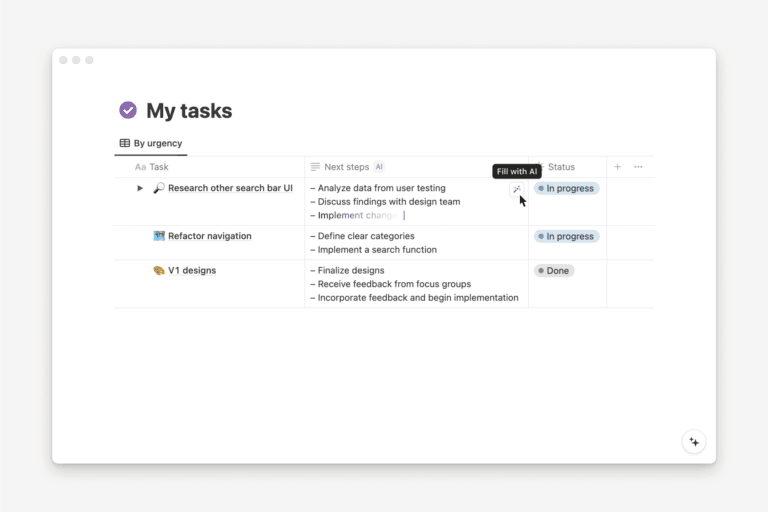The Best Website Builders for Travel Agencies and Tour Operators: Crafting Your Digital Adventure
Introduction
In today’s rapidly evolving digital landscape, the travel industry is witnessing a significant transformation in how businesses operate and engage with customers. The necessity for a robust online presence has never been more urgent for travel agencies and tour operators. As consumers increasingly turn to the internet for information, comparisons, and bookings, having a professional website has become essential for success. A well-crafted website serves not only as a digital storefront but also as a powerful marketing tool that showcases services, destinations, and customer testimonials, all of which contribute to building trust and credibility.
The traditional approach of relying solely on physical offices or word-of-mouth recommendations is no longer sufficient in attracting modern travelers. Today’s clients favor the convenience of browsing and booking online, making it imperative for travel-related businesses to establish a formidable digital presence that reflects their brand identity. Thankfully, the advent of user-friendly website builders has made it possible for travel agencies and tour operators to create attractive and functional websites without incurring substantial costs associated with hiring web developers. These tools empower individuals with no technical expertise to design, launch, and manage their online platforms effectively.
Furthermore, a professionally designed website enhances the overall perception of a travel agency or tour operator. Customers are more likely to choose services from a business that appears trustworthy and established. A strategically designed site can significantly influence consumer decisions, driving leads and facilitating bookings. Consequently, embracing the digital realm allows travel businesses to respond swiftly to market changes while providing an engaging user experience. As the online travel market continues to expand, establishing an impressive digital footprint has become not just advantageous, but crucial for long-term success and growth in this vibrant industry.
Key Features to Look for in a Website Builder
When selecting a website builder, travel agencies should prioritize several key features that cater to the unique needs of the travel industry. One of the most critical aspects is ease of use. A user-friendly interface ensures that agency staff, regardless of their technical expertise, can effectively manage the website. This is pivotal in enabling quick updates to travel packages, itineraries, and promotional offers without the need for extensive training or outside technical help.
Customization options are another essential feature. The ability to create a website that reflects the brand’s identity and resonates with potential clients is vital in today’s competitive landscape. Builders that offer customizable templates allow agencies to personalize their online presence, showcasing unique offerings and creating a memorable user experience. This feature becomes particularly important when catering to niche markets within the travel industry.
SEO capabilities must not be overlooked, as they directly impact the visibility of a travel agency’s website in search engine results. A good website builder should incorporate built-in SEO tools to optimize performance, such as meta tags, alt text for images, and user-friendly URL structures. These tools assist in increasing organic traffic and attracting clients seeking travel solutions.
Finally, integrated booking systems are a crucial consideration. Travel agencies often require a seamless way to manage bookings directly through their website. A website builder that supports integrated booking functionality simplifies this process, ensuring that customers can easily view available options and complete transactions. This not only enhances user experience but also reduces operational burdens by automating booking management.
In essence, when selecting a website builder, travel agencies must consider ease of use, customization, SEO capabilities, and integrated booking systems to effectively cater to their operational needs and improve client engagement.
Top Website Builders for Travel Agencies
In the rapidly evolving digital landscape, travel agencies and tour operators must establish a robust online presence to attract customers and enhance their operations. Selecting the right website builder is crucial in creating an engaging and user-friendly website. Below we explore some of the leading website builders tailored for the travel sector, each evaluated on user friendliness, design capabilities, SEO effectiveness, and booking integration options.
Wix is renowned for its intuitive drag-and-drop interface, making it an ideal choice for travel agencies with limited technical expertise. With a broad range of customizable templates specifically designed for travel-related services, Wix allows agencies to showcase destinations and itineraries effectively. Moreover, its SEO functionalities, including customizable meta-tags and integrated analytics, contribute to improved visibility in search engine results, ensuring potential clients find your offerings easily.
Squarespace stands out with its sleek, aesthetically pleasing designs that attract visitors. This platform not only offers beautiful templates but also powerful blogging features, positioning agencies as authoritative voices in the travel sector. Squarespace includes built-in SEO tools, which help enhance site rankings in search results, assisting in driving organic traffic to the agency’s site. The integration of third-party booking systems is seamless, offering potential clients a straightforward booking experience.
WordPress is arguably the most flexible option, catering to agencies that require extensive customization. With its extensive library of plugins, travel agencies can enhance their sites with booking tools, customer reviews, and itinerary planners. While the learning curve may be steeper than others, the control over the site’s functionality is a significant advantage. Coupled with effective SEO plugins, WordPress delivers the potential for higher search engine rankings, attracting a wider client base.
Each of these website builders offers unique features and capabilities, making them suitable choices for travel agencies looking to enhance their digital footprint and streamline booking processes. By assessing the specific needs and preferences of their target audience, agencies can select the most appropriate platform for their digital transformation.
Comparison of Popular Platforms
When selecting a website builder for travel agencies and tour operators, it is essential to understand the various options available and their respective strengths and weaknesses. Below, we present a comparison of several popular platforms to assist in making an informed decision.
| Platform | Pros | Cons | Pricing | Best Use Case |
|---|---|---|---|---|
| Wix | User-friendly interface, customizable templates, extensive app market. | Limited e-commerce functionalities on lower tiers. | From $14/month. | Great for small travel agencies and personal tour operators. |
| Squarespace | Elegant designs, all-in-one platform, built-in SEO tools. | Fewer third-party integrations than competitors. | From $12/month. | Ideal for travel agencies prioritizing aesthetics and branding. |
| WordPress.org | Highly customizable, SEO-friendly, vast plugin library. | Steeper learning curve, requires hosting. | Variable, starting from $5/month (excluding hosting). | Best for agencies wanting extensive control and features. |
| Shopify | Robust e-commerce features, secure payment options, excellent support. | Primarily focused on online stores, might be excessive for basic sites. | From $29/month. | Suitable for tour operators who sell merchandise or experiences online. |
| Weebly | Drag-and-drop builder, affordable pricing, mobile-responsive themes. | Limited flexibility compared to others. | From $6/month. | Good choice for startups and small agencies seeking simplicity. |
This comparison highlights the distinct features and pricing of each platform, allowing travel agencies and tour operators to better understand which website builder aligns with their specific needs and goals. Each platform offers unique advantages, so the best option will depend on individual requirements and preferences.
Case Studies: Success Stories from Travel Agencies
Several travel agencies and tour operators have successfully harnessed the power of website builders to create compelling online platforms, effectively enhancing their digital presence and improving customer engagement. One notable example is Travelopia, which utilized Wix to create a visually appealing and user-friendly website. By integrating stunning imagery and easy navigation, they captured the essence of travel and adventure. Their success can be attributed to the seamless booking experience offered on their platform, leading to significant increases in both inquiries and bookings.
Another exemplary case is G Adventures, which employed Squarespace to develop a comprehensive online portal. The agency focused on storytelling through their website, sharing impactful travel experiences and itineraries. By doing so, they created an emotional connection with potential customers, which greatly improved engagement rates. The use of engaging visuals alongside optimized content helped drive organic traffic to their website, culminating in higher conversion rates.
Lastly, Intrepid Travel showcases an effective use of WordPress to design their multi-faceted online presence. Through customization options available on the platform, they created an extensive blog section filled with travel tips and destination highlights. This not only positioned them as thought leaders in the travel industry but also improved customer inquiry touchpoints. Their commitment to user experience, reflected in their responsive design and informative content, has translated into a substantial increase in both lead generation and customer satisfaction.
These case studies of Travelopia, G Adventures, and Intrepid Travel illustrate the significant impact that website builders can have on travel agencies. By leveraging digital platforms effectively, these agencies have established a robust online presence, fostered client engagement, and ultimately driven bookings, keeping them competitive in a rapidly evolving travel market. Such success stories highlight the importance of choosing the right website builder for travel agencies aiming to enhance their digital landscape.
Common Mistakes to Avoid When Building Your Travel Website
Creating a travel website can be an exciting yet challenging endeavor for tourism professionals. However, several common pitfalls can hinder the online success of travel agencies and tour operators. First and foremost, it is essential to avoid a cluttered design. While it is easy to be tempted to showcase all available travel options on a single page, too much information can overwhelm visitors, leading to frustration. Opt for a clean, organized layout that allows users to navigate seamlessly through your offerings.
Another mistake to steer clear of is neglecting mobile optimization. With an increasing number of users accessing websites via smartphones and tablets, ensuring that your travel website is mobile-friendly is critical. Failure to implement a responsive design can result in lost leads and diminished user experience. Ensure that the site adapts smoothly to various screen sizes, offering an intuitive browsing experience for all visitors.
Content quality is another focal point. Travel agencies often underestimate the impact of high-quality images and well-written descriptions. Utilizing stock photos may seem tempting due to low costs, but authentic imagery representing your services will resonate more with potential clients. Crisp and engaging text is equally vital, as it provides a clear understanding of your services and entices visitors to take the next step.
Additionally, being vague about pricing and services can deter customers. Transparent pricing not only builds trust but also helps set clear expectations for clients. Consider displaying clear packages, inclusions, and any additional costs upfront. Lastly, neglecting to include a robust call-to-action (CTA) is a mistake often overlooked. CTAs guide visitors on what to do next, whether it’s booking a tour or signing up for a newsletter. Integrating strong CTAs can significantly enhance conversion rates.
SEO Best Practices for Travel Agency Websites
Search Engine Optimization (SEO) is a crucial element for any travel agency looking to enhance its online visibility and attract potential clients. By implementing effective SEO strategies, travel agencies can improve their chances of ranking higher in search engine results pages (SERPs) and reaching a broader audience. This section will discuss fundamental SEO practices tailored specifically for travel agency websites.
First and foremost, keyword research is essential. Travel agencies should identify relevant keywords and phrases that potential clients are likely to search for when looking for travel services. Utilizing tools like Google Keyword Planner or SEMrush can help uncover high-traffic keywords specific to the travel niche. Once identified, these keywords should be integrated naturally into webpage content, including titles, headers, and meta descriptions.
Optimizing web pages is another critical aspect of SEO. Each page should be tailored to focus on specific services or destinations, with content that is both informative and engaging. Using descriptive titles and well-structured headers can enhance readability and attract visitors. Additionally, incorporating local SEO practices—such as including location-based keywords—can significantly improve visibility in local searches, which is particularly vital for travel agencies.
Content creation strategies should not be overlooked, as high-quality content can establish authority and encourage user engagement. Travel blogs, destination guides, and customer testimonials can provide valuable information and improve user experience. Moreover, leveraging multimedia elements like images and videos can make the website more appealing and engaging, ultimately contributing to longer visit durations.
Finally, social media platforms can be a powerful tool for driving traffic to travel agency websites. By sharing engaging content and promoting special offers on channels such as Instagram, Facebook, and Twitter, travel agencies can increase brand awareness and engage with a wider audience. Regularly interacting with followers and responding to inquiries can also help foster a loyal online community.
Future Trends in Travel Agency Website Development
The landscape of travel agency website development is continuously evolving, influenced by technological advancements and shifting consumer behavior. One of the most significant trends is the increasing emphasis on mobile optimization. As a substantial number of travelers conduct research and book trips via their smartphones, it is crucial for travel agencies to ensure that their websites are fully responsive. This means that a user-friendly experience should be available across all devices, enhancing engagement and conversion rates significantly.
Another noteworthy advancement in this field is the integration of artificial intelligence. AI can provide personalized experiences by utilizing data to curate customized travel recommendations based on user preferences and past behaviors. For instance, virtual travel assistants powered by AI can guide potential clients through the planning process, suggesting tours, accommodations, and activities that align with their interests. This level of personalization not only improves user satisfaction but also fosters loyalty, encouraging customers to return for future bookings.
Moreover, the importance of maintaining up-to-date content cannot be overstated. In the travel industry, where information is rapidly subject to change—with aspects such as travel restrictions, local regulations, and destination offerings frequently updated—keeping content current is essential. Dynamic content management strategies that allow agencies to easily update their websites will attract and retain customers by showcasing the latest travel deals and experiences. Additionally, incorporating user-generated content such as testimonials and reviews can foster trust and community engagement, further solidifying a travel agency’s reputation in the industry.
As we look ahead, it is clear that embracing these trends is essential for travel agencies and tour operators aiming to create impactful and engaging online platforms. Staying abreast of these advancements will pave the way for seamless interactions with customers and more robust business growth.
Conclusion and Call to Action
As we have explored throughout this post, selecting the appropriate website builder is a critical decision for travel agencies and tour operators seeking to establish a robust online presence. The digital landscape offers numerous options, each with unique features tailored to the specific needs of the travel industry. Factors such as ease of use, customization capabilities, integration with booking systems, and responsive design must be carefully considered to ensure that your website not only attracts visitors but also converts them into loyal customers.
The right website builder can streamline the process of crafting a visually appealing and functional platform, allowing travel agencies to showcase their offerings effectively. Whether you are looking for an all-inclusive solution like Wix or a more tailored approach with WordPress, understanding the strengths and limitations of each option is essential in making a well-informed choice. Additionally, utilizing SEO best practices and optimizing the website for mobile devices can enhance user experience, potentially leading to increased traffic and bookings.
We encourage you to take action based on the insights gained from this article. Consider experimenting with one of the suggested website builders to start creating the ideal digital adventure that reflects your agency’s unique offerings. Sharing your experiences with these platforms could benefit others in the community who are navigating similar decisions. Lastly, we invite you to engage with us in the comments section below. Your thoughts and feedback on this topic are invaluable, and we look forward to continuing the conversation about best practices in building successful websites for travel agencies and tour operators.
Avi is a researcher educated at the University of Cambridge, specialising in the intersection of AI Ethics and International Law. Recognised by the United Nations for his work on autonomous systems, he translates technical complexity into actionable global policy. His research provides a strategic bridge between machine learning architecture and international governance.







